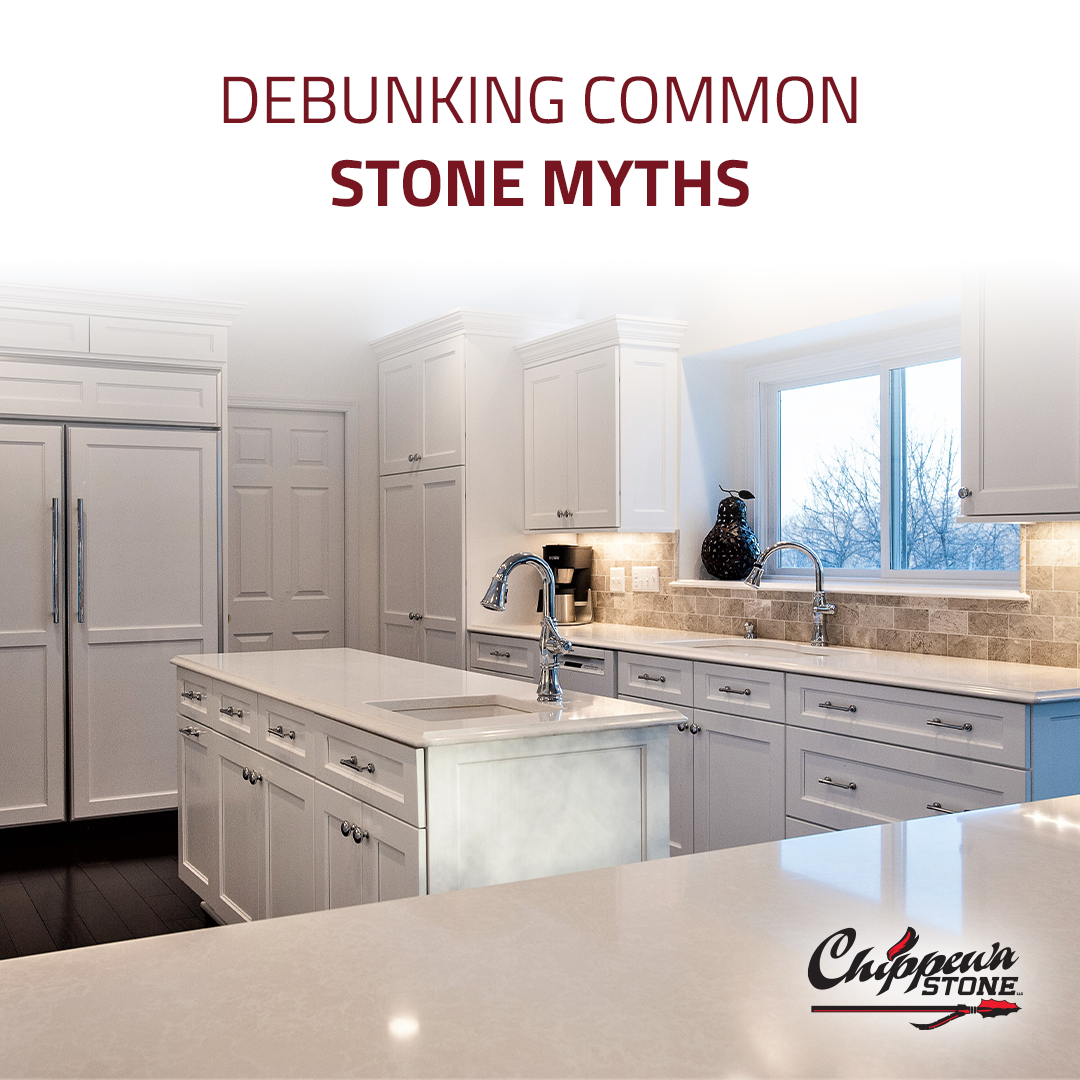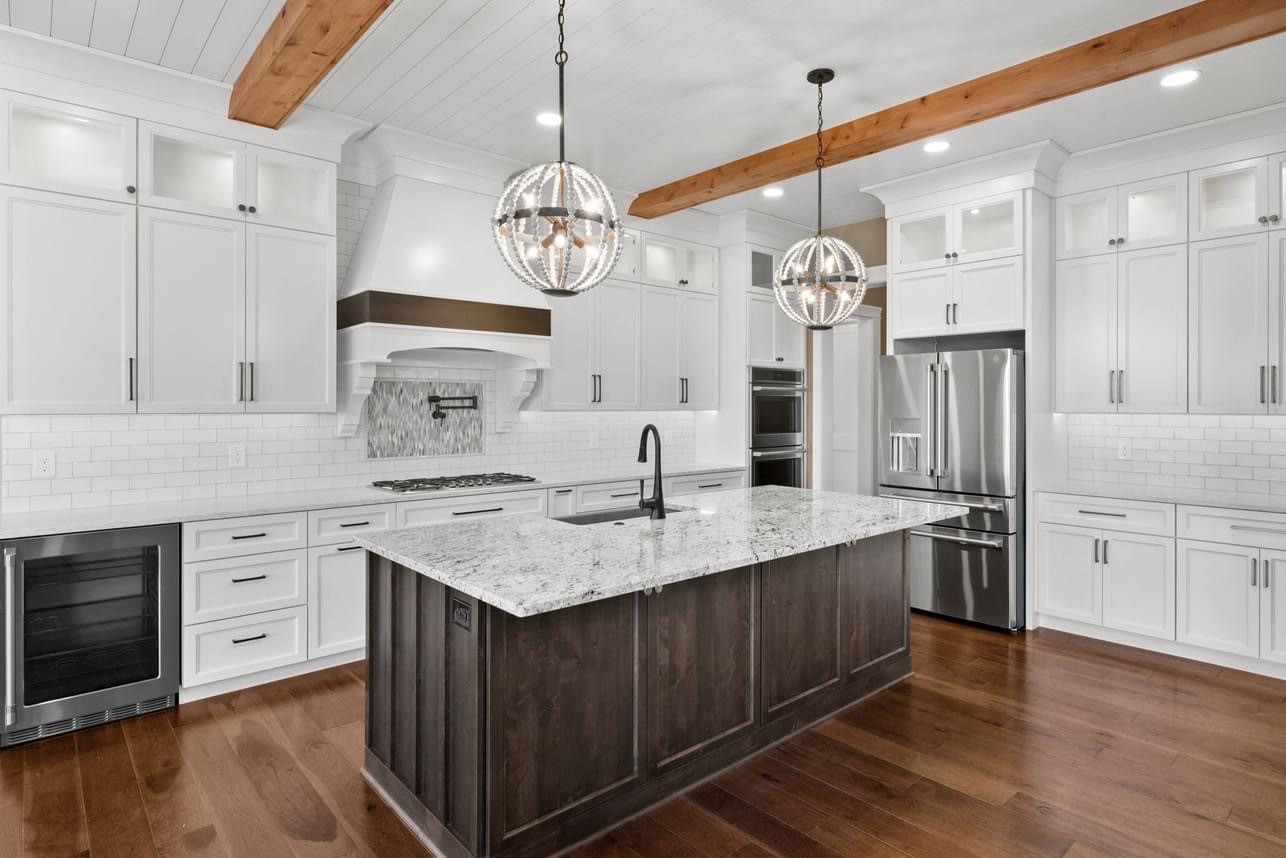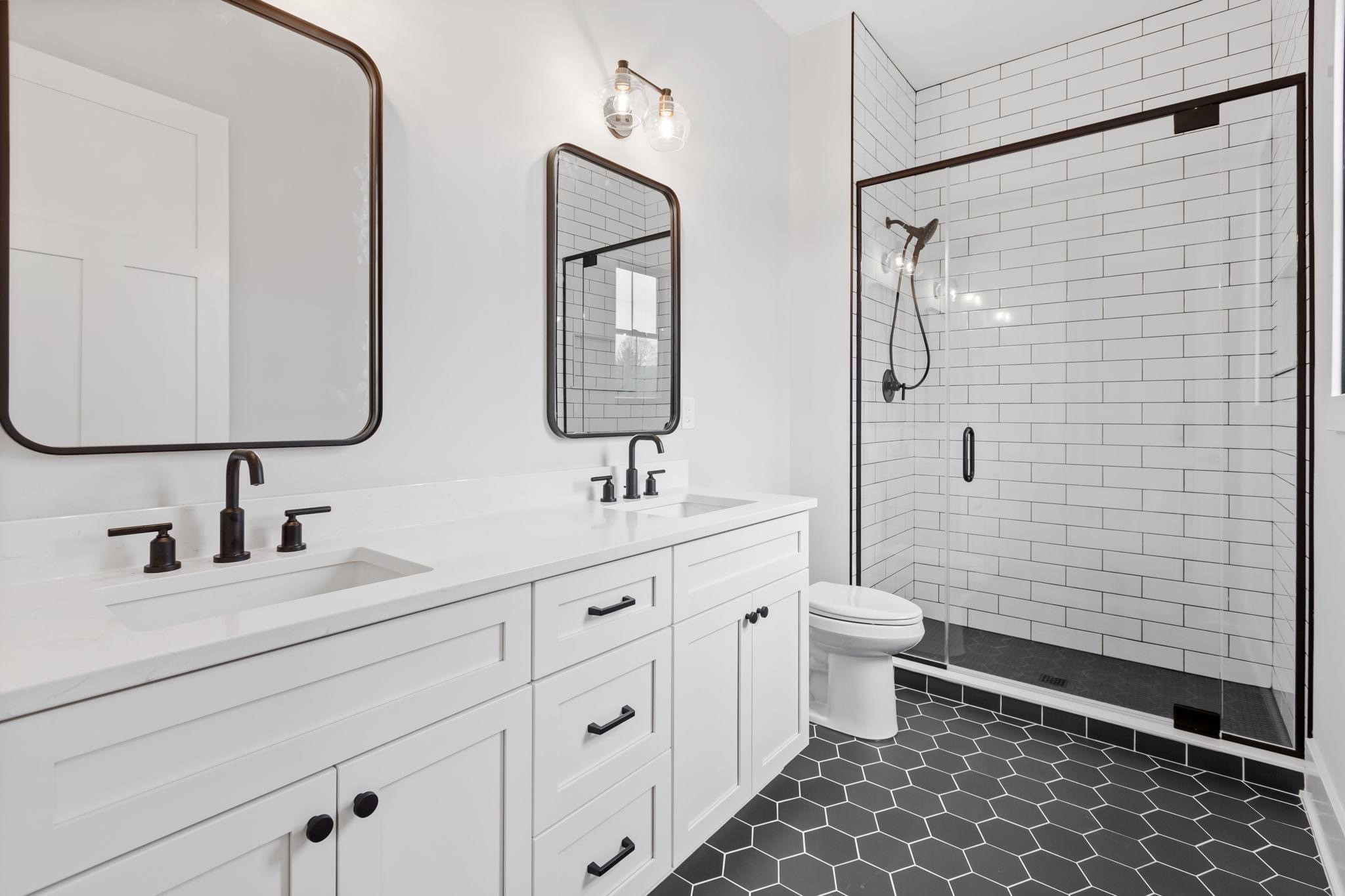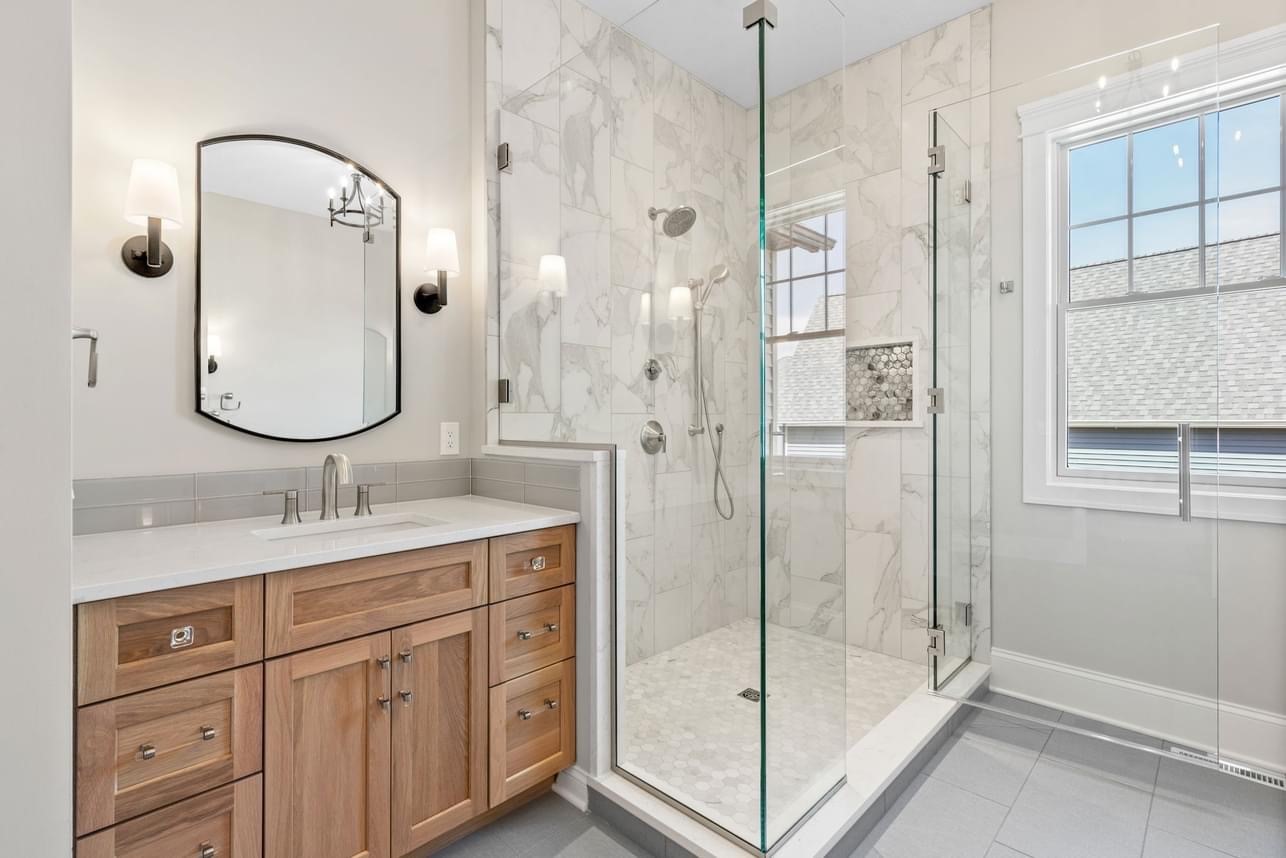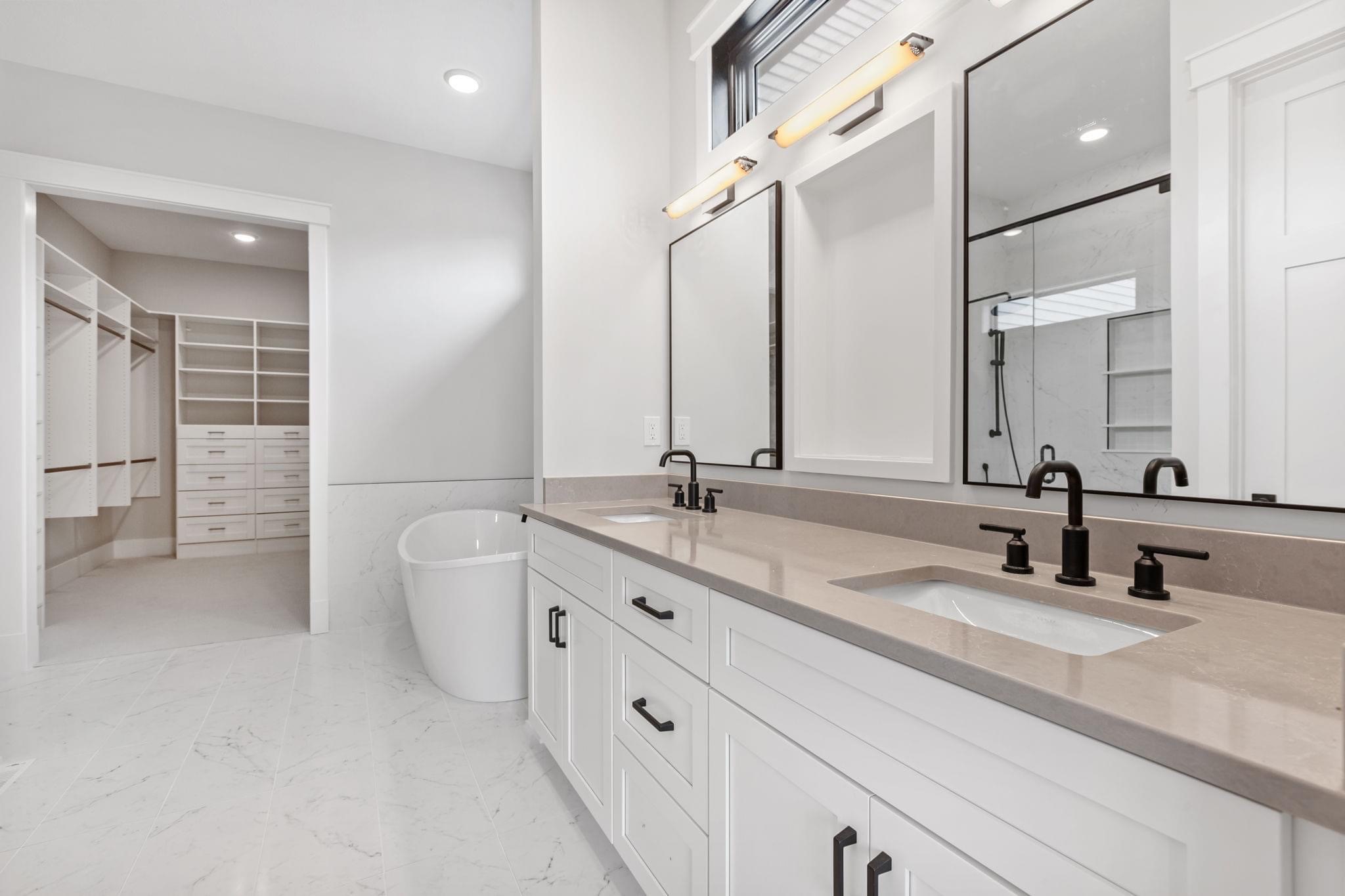When it comes to choosing materials for your countertops, natural stone often stands out as a luxurious and durable option. However, with its popularity comes a fair share of myths and misconceptions. Whether it’s about the durability of marble or the maintenance of quartz, these myths can cause confusion and lead homeowners to make decisions based on inaccurate information. In this blog post, we’ll debunk some of the most common myths associated with the types of stone we offer at Chippewa Stone: granite, quartz, quartzite, marble, dolomite, and soapstone.
Myth 1: Granite is Indestructible
The Truth: While granite is one of the hardest natural stones available and highly resistant to scratches, heat, and everyday wear and tear, it’s not indestructible.
Granite’s durability makes it an excellent choice for countertops, especially in high-traffic kitchens. However, like all materials, it can be damaged if not properly cared for. For example, while granite is heat resistant, placing a piping hot pot directly on its surface repeatedly can cause discoloration or thermal shock, which could lead to cracks. Additionally, although granite is highly scratch-resistant, using a knife directly on the surface can eventually dull the blade and may even cause minor scratches over time. Sealing granite regularly is also crucial to prevent staining, as it is a porous material.
In short, granite is exceptionally durable, but it requires proper care to maintain its beauty and longevity.
Myth 2: Quartz is Completely Natural
The Truth: Quartz countertops are not made entirely of natural stone.
Quartz is often marketed as a natural stone, which leads to the misconception that quartz countertops are entirely natural. In reality, quartz countertops are engineered products made by combining approximately 90-95% ground natural quartz with resins, polymers, and pigments. This manufacturing process allows quartz countertops to mimic the appearance of natural stone while offering greater consistency in color and pattern.
This engineered nature of quartz also contributes to its non-porous surface, which is highly resistant to stains, scratches, and bacteria. While quartz offers many of the benefits of natural stone, it’s essential to understand that it’s not a purely natural product.
In short, granite is exceptionally durable, but it requires proper care to maintain its beauty and longevity.
Myth 3: Quartzite and Quartz are the Same
The Truth: Quartzite and quartz are two distinct materials with different properties and origins.
Despite their similar-sounding names, quartzite and quartz are entirely different. Quartzite is a natural metamorphic rock that starts as sandstone and transforms under intense heat and pressure. This process makes quartzite an incredibly hard and durable stone, even more so than granite in many cases. Its natural beauty often resembles marble, with stunning veining and patterns, but it offers greater durability and resistance to scratching and etching.
Quartz, as mentioned earlier, is an engineered product. While both materials are durable and beautiful, their differences are significant. Quartzite requires sealing to protect against staining due to its porous nature, whereas quartz is non-porous and doesn’t require sealing. Homeowners should not confuse the two when selecting materials for their projects, as they have different maintenance requirements and aesthetic qualities.
Myth 4: Marble is Too Delicate for Kitchens
The Truth: Marble can be a durable and functional choice for kitchen countertops with proper care.
Marble has long been associated with luxury and elegance, but it also comes with a reputation for being high-maintenance and easily damaged. While it’s true that marble is softer and more porous than granite or quartzite, making it more susceptible to scratching and staining, these issues can be mitigated with proper care and maintenance.
Sealing marble countertops regularly can help protect them from staining. Additionally, being mindful of acidic substances like lemon juice, vinegar, or wine, which can cause etching, is essential. Using cutting boards, coasters, and trivets will also help preserve the marble’s surface.
Marble’s beauty and unique veining can add a timeless appeal to any kitchen, and with the right precautions, it can be a durable and functional choice. It’s important to weigh the pros and cons based on your lifestyle and how much maintenance you’re willing to perform.
Myth 5: Dolomite is the Same as Marble
The Truth: While dolomite and marble are similar, they have distinct differences in composition and durability.
Dolomite is often confused with marble because of its similar appearance, but they are not the same stone. Dolomite is a sedimentary rock that forms from the chemical alteration of limestone and is composed mainly of the mineral dolomite. Marble, on the other hand, is a metamorphic rock formed from limestone under high pressure and temperature.
The key difference between the two lies in their hardness and durability. Dolomite is generally harder than marble, making it slightly more resistant to scratches and etching. However, it’s still softer than granite and quartzite, so it requires careful maintenance similar to marble. Dolomite’s increased durability compared to marble makes it an attractive option for homeowners who love the look of marble but want a bit more resilience.
Myth 6: Soapstone is Not Durable
The Truth: Soapstone is highly durable, even though it’s softer than other stones like granite and quartzite.
Soapstone’s softness often leads to the misconception that it’s not durable enough for kitchen countertops. However, while soapstone is softer than granite, quartzite, or marble, it is incredibly dense and non-porous, making it highly resistant to stains, bacteria, and heat.
Soapstone’s softness does mean that it can scratch more easily than harder stones, but these scratches are often superficial and can be sanded out or even blend into the stone’s natural patina over time. Many homeowners appreciate the aged, rustic look that soapstone develops with use. Additionally, soapstone’s resistance to heat makes it an excellent choice for areas near cooktops or fireplaces.
Myth 7: All Stones Require the Same Level of Maintenance
The Truth: Different stones have different maintenance requirements, and understanding these differences is key to choosing the right material for your home.
One of the most common misconceptions is that all stone surfaces require the same type of care and maintenance. In reality, the level of maintenance varies significantly depending on the type of stone.
- Granite: Requires periodic sealing to maintain its resistance to stains and bacteria. Regular cleaning with mild soap and water is sufficient.
- Marble: Needs more frequent sealing due to its porous nature and is sensitive to acidic substances. Gentle cleaning with pH-neutral cleaners is recommended.
- Quartzite: Like granite, quartzite needs sealing and is relatively easy to care for with mild soap and water.
- Quartz: Is low-maintenance because it’s non-porous and doesn’t require sealing. Regular cleaning with soap and water is usually enough.
- Dolomite: Requires sealing similar to marble, but it’s slightly more resistant to etching and scratching.
- Soapstone: Does not require sealing, but periodic oiling with mineral oil can enhance its natural patina. Scratches can be sanded out if desired.
Understanding the maintenance needs of each stone type is crucial for ensuring that your surfaces remain beautiful and functional for years to come.
Myth 8: Stone Surfaces are Unhygienic
The Truth: Stone surfaces can be very hygienic when properly sealed and maintained.
Another common myth is that stone surfaces, particularly porous ones like granite and marble, are breeding grounds for bacteria and germs. The truth is that when properly sealed and maintained, stone surfaces can be very hygienic.
Sealing stone surfaces creates a barrier that prevents liquids, bacteria, and stains from penetrating the stone. Regular cleaning with mild soap and water is usually sufficient to keep stone countertops clean and sanitary. Additionally, stones like quartz, which are non-porous, are naturally resistant to bacteria and other pathogens.
The key to maintaining a hygienic stone surface is proper sealing and regular cleaning, just as with any other kitchen surface.
Myth 9: Natural Stone is Not Environmentally Friendly
The Truth: Natural stone can be a sustainable and eco-friendly choice, especially when sourced responsibly.
There’s a misconception that natural stone is not environmentally friendly due to the quarrying process. However, when sourced responsibly, natural stone can be an eco-friendly option for your home.
Many natural stone suppliers, like Chippewa Stone, prioritize sustainable practices in quarrying and processing. Additionally, natural stone is a long-lasting material that doesn’t require frequent replacement, reducing waste over time. Stones like granite, marble, and quartzite are abundant, and some can even be sourced locally, reducing the carbon footprint associated with transportation.
Moreover, natural stone is recyclable and can be repurposed for other uses, further enhancing its sustainability. When choosing natural stone, it’s important to work with suppliers who prioritize sustainability and ethical sourcing.
Myth 10: Stones Like Marble and Quartzite are Too Expensive
The Truth: While some natural stones can be more expensive, there are options to fit a variety of budgets.
It’s true that natural stones like marble and quartzite are often seen as high-end, luxury materials, but that doesn’t mean they are out of reach for homeowners on a budget. The cost of stone can vary widely depending on factors such as rarity, quality, and the specific type of stone.
For example, more common stones like granite or soapstone can be more affordable, while exotic stones like certain types of marble or quartzite may be more expensive. However, even within these categories, there are a range of options to fit different price points. Additionally, investing in natural stone can add value to your home, making it a worthwhile investment in the long run.
At Chippewa Stone, we offer a wide selection of natural stones to suit various styles and budgets, helping you find the perfect material for your project without breaking the bank. Schedule a consultation today, and let our experts guide you in choosing the right countertop to elevate your space.

